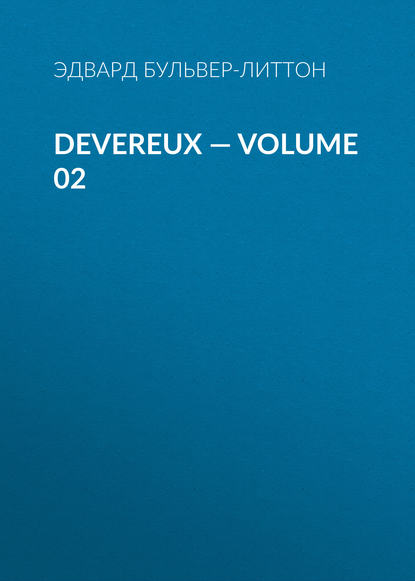По всем вопросам обращайтесь на: info@litportal.ru
(©) 2003-2025.
✖
Devereux — Volume 02
Настройки чтения
Размер шрифта
Высота строк
Поля
8
This seems to corroborate the suspicion entertained of the identity of
Colonel Cleland with the Will Honeycomb of the "Spectator."
9
"The Greek wants an ablative, the Italians a dative, I a nominative."
10
The Earl of Norwich.
11
Which is possibly the reason why there are so many disciples of Kant at the present moment.—ED.
12
The "Theodicaea."
13
Whatever pretensions Monsieur Desmarais may have had to originality, this tissue of opinions is as old as philosophy itself.—ED.
14
In the Customs.
15
It has been said that Swift was only coarse in his later years, and, with a curious ignorance both of fact and of character, that Pope was the cause of the Dean's grossness of taste. There is no doubt that he grew coarser with age; but there is also no doubt that, graceful and dignified as that great genius could be when he pleased, he affected at a period earlier than the one in which he is now introduced, to be coarse both in speech and manner. I seize upon this opportunity, /mal a propos/ as it is, to observe that Swift's preference of Harley to St. John is by no means so certain as writers have been pleased generally to assert. Warton has already noted a passage in one of Swift's letters to Bolingbroke, to which I will beg to call the reader's attention.
"It is /you were/ my hero, but the other (Lord Oxford) /never was/; yet if he were, it was your own fault, who taught me to love him, and often vindicated him, in the beginning of your ministry, from my accusations. But I granted he had the greatest inequalities of any man alive; and his whole scene was fifty times more a what-d'ye-call-it than yours; for I declare yours was /unie/, and I wish you would so order it that the world may be as wise as I upon that article."
I have to apologize for introducing this quotation, which I have done because (and I entreat the reader to remember this) I observe that Count Devereux always speaks of Lord Bolingbroke as he was spoken of by the eminent men of that day,—not as he is now rated by the judgment of posterity.—ED.
16
Magnes.
17
"This privilege of mine, to laugh,—such a nothing as it seems,—I would not barter to thee for an Iliad."
18
This picture represents the Count in an undress. The face is decidedly, though by no means remarkably, handsome; the nose is aquiline,—the upper lip short and chiselled,—the eyes gray, and the forehead, which is by far the finest feature in the countenance, is peculiarly high, broad, and massive. The mouth has but little beauty; it is severe, caustic, and rather displeasing, from the extreme compression of the lips. The great and prevalent expression of the face is energy. The eye, the brow, the turn of the head, the erect, penetrating aspect,—are all strikingly bold, animated, and even daring. And this expression makes a singular contrast to that in another likeness to the Count, which was taken at a much later period of life. The latter portrait represents him in a foreign uniform, decorated with orders. The peculiar sarcasm of the month is hidden beneath a very long and thick mustachio, of a much darker colour than the hair (for in both portraits, as in Jervas's picture of Lord Bolingbroke, the hair is left undisguised by the odious fashion of the day). Across one cheek there is a slight scar, as of a sabre cut. The whole character of this portrait is widely different from that in the earlier one. Not a trace of the fire, the animation, which were so striking in the physiognomy of the youth of twenty, is discoverable in the calm, sedate, stately, yet somewhat stern expression, which seems immovably spread over the paler hue and the more prominent features of the man of about four or five and thirty. Yet, upon the whole, the face in the latter portrait is handsomer; and, from its air of dignity and reflection, even more impressive than that in the one I have first described.—ED.
19
Namely, that Count Devereux ascertained the priest's communications and overtures from the Chevalier. The precise extent of Bolingbroke's secret negotiations with the exiled Prince is still one of the darkest portions of the history of that time. That negotiations /were/ carried on, both by Harley and by St. John, very largely, and very closely, I need not say that there is no doubt.
20
Vauxhall.
Другие электронные книги автора Эдвард Джордж Бульвер-Литтон
Другие аудиокниги автора Эдвард Джордж Бульвер-Литтон
Последние дни Помпеи




 4.67
4.67












